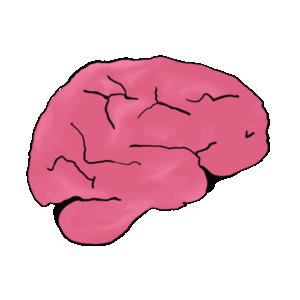IBS
Irritable bowel syndrome (IBS) is a common problem affecting an estimated one in ten people globally. IBS is a complex, chronic condition that requires a patient-centered approach to care.
IBS
Irritable bowel syndrome (IBS) can be thought of as a symptom-based condition with a range of symptoms. Many people with IBS report abdominal pain that can be improved or worsened by changes in their bowel movements. Patients with IBS often experience worsening of their symptoms when they are more stressed or anxious. Certain foods can also make IBS symptoms worse.
Over the past decade, IBS has become categorized as a brain-gut-microbiome disorder. While for a long time, providers taking care of patients with IBS have focused on improving the symptoms of abdominal pain and or bloating that changes in relationship to bowel movements, newer research emphasizes the limitations of this narrowed focus. Patients with IBS frequently describe symptoms extending beyond abdominal pain and altered bowel habits – a substantial proportion of patients with IBS report non-GI symptoms, such as fatigue, insomnia, depression, and anxiety, all of which are known to negatively impact quality of life. When taking care of patients with IBS, addressing the non-GI symptoms has been shown to improve the GI symptoms, making a holistic care approach to IBS care necessary.
A thorough review of your symptoms and history is important in order for your health provider to assess whether or not you have IBS as many IBS symptoms can overlap with other more defined problems, such as functional constipation or diarrhea. Though important, symptom-based criteria often cannot be used alone to establish a diagnosis of IBS; laboratory testing, imaging or even endoscopic procedures may be needed to confirm or rule-out other diseases such as celiac disease or inflammatory bowel disease.
Treatment Options for IBS
The main strategies for treatment of IBS are dietary, psychotherapy, pharmacotherapy, and microbial therapies. Given the complexities underlying the IBS symptoms, it is not uncommon and often necessary to take a multidisciplinary approach to treating IBS. Given the unique combination of problems that can cause IBS as well as the diverse symptom profile of IBS, taking a patient-centered, shared-decision making approach to treatment goals and strategies is imperative for patients to experience successful improvement and healing.
The following offers a snapshot of some common IBS treatment strategies:
Diet & Nutritional Changes
Healthy eating is a major part of first-line management strategies for treating IBS.
Specifically, research suggests that adherence to a low FODMAP diet improves global IBS symptoms, abdominal pain, bloating, and flatulence.
FODMAP stands for Fermentable Oligosaccharides, Disaccharides, Monosaccharides and Polyols. These types of carbohydrates can increase water content and microbiome gas production in the bowel, which can cause GI distress in people with IBS. By restricting the diet – reducing as much as possible the consumption of FODMAPs – this water content and gas production can be reduced and IBS symptoms improved. Once the IBS symptoms are improved, certain FODMAPs can slowly be reintroduced, and based on how a person with IBS feels as the FODMAPs are reintroduced, a personalized FODMAP consumption plan can be created to reduce IBS symptoms. Though proven to be effective, the low FODMAP diet is complex and challenging to follow and may lead to lower fiber, iron, and calcium intake. Therefore, people with IBS who want to try a low FODMAP diet, often need additional support and resources to be successful and safe.

Peppermint oil use may also be of benefit for people suffering from IBS, as the peppermint oil contains L-menthol, which can relax the smooth muscles of the GI tract, offering relief to patients struggling with muscle spasms. However, this should be used cautiously in patients with reflux, as the peppermint oil may relax the esophageal sphincter muscles, allowing more reflux of gastric acid contents into the esophagus.
Fiber supplementation, particularly psyllium, also can improve IBS symptoms. Other treatment options that focus on altering the microbiome – prebiotics and probiotics – also may improve IBS symptoms.
When it comes to trying fiber, prebiotics and probiotics, I recommend patients with IBS interested in trying fiber, prebiotics and/or probiotics start by sampling the product while minimally changing their everyday routine for about 2-3 weeks – avoiding changes in their diet, medications, stress, and exercise. If the IBS symptoms are unchanged after 2-3 weeks, then I recommend stopping the product. If the IBS symptoms are mildly improved or significantly improved, then try continuing the product. If the IBS symptoms worsen at all during the trial of the product, simply just stop the product at that time.


Psychological Therapies
More recently, IBS has become recognized as a disorder of brain, gut, and microbiome interactions. Because of this, more and more literature suggests that the use of psychological interventions such as Yoga, Mindfulness-Based Stress Reduction, Cognitive-Behavioral Therapy, or Gut-Directed Hypnotherapy can help treat the brain-gut-microbiome disorder and improve IBS symptoms. We hope to provide you soon with a yoga and meditation IBS focused post. Be sure to drop your email at the end of this page to receive a notice of its release!
Pharmacologic Approaches:
In some cases, a pharmacologic approach may be appropriate. First-line pharmacological treatments may focus on specific symptoms like pain, diarrhea, mixed bowel function, or constipation. If a patient does not respond to the first-line approaches, further testing may be needed to determine the appropriate second-line pharmacological strategies.

The importance of Integrated Care
At this time, there is no single simple solution for treating IBS. IBS is a complex, chronic condition that requires a patient-centered, shared-decision making approach that evolves as the clinical context and symptoms change. This approach focuses on comprehensively understanding the patient’s history and symptoms so that different approaches to improving the problems can be considered and tried, with the ultimate goal of not only improving overall ailments, but also enhancing sense of well-being and quality of life.
Strategies to achieve a positive outcome may span nutritional, psychological and pharmacologic approaches. Recent studies suggest that integrated care approaches are effective in reducing the amount of subsequent medical procedures and improving quality of life.
At Easy Belly, we take an integrated approach to helping patients find and maintain long-term relief for IBS, working with patients to create patient-centered, personalized treatment plans that incorporate nutritional, behavioral, psychological, and/or pharmacological options that are best suited for each individual.
Remember, this approach is for people with Irritable Bowel Syndrome (IBS) without alarm symptoms and is intended to help you as you await seeing your GI provider. If you have any of the following alarm symptoms, please let your doctor know so that they can expedite having you seen. Alarm symptoms most often include but are not limited to blood in stool, abdominal pain or diarrhea that awakens you out of sleep, or unintentional weight loss. This also includes if you have a family history of inflammatory bowel disease (IBD) or colon cancer in first-degree relatives (Mom, Dad, Siblings) age 60 or younger, or irritable bowel syndrome diagnosed after age 40.
Telemedicine Consultation
At Easy Belly, we place a strong emphasis on long-term patient-centered care.
Our goal is to help you understand your condition, explore your options, and decide on a treatment plan that best suits your needs and lifestyle.


